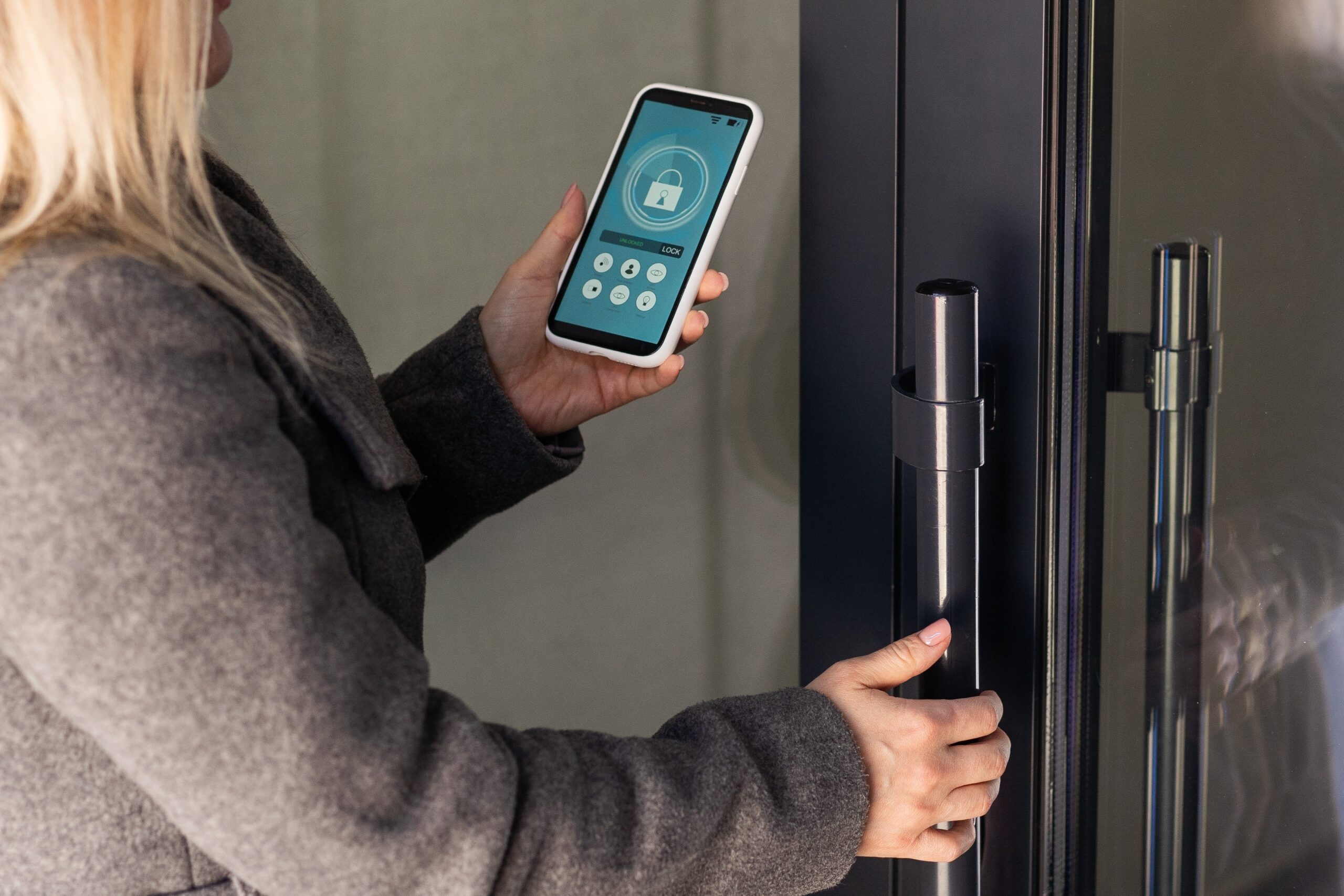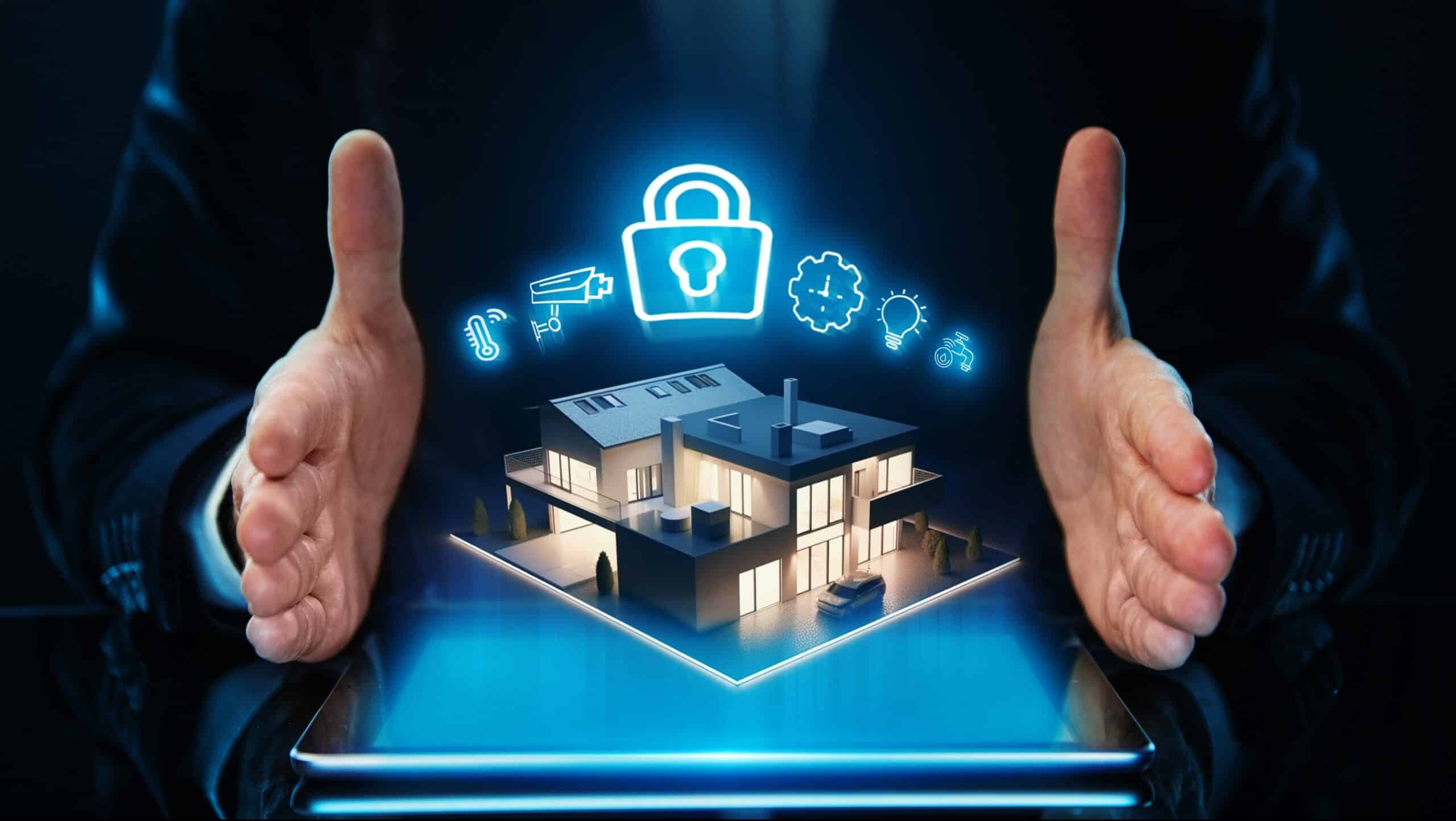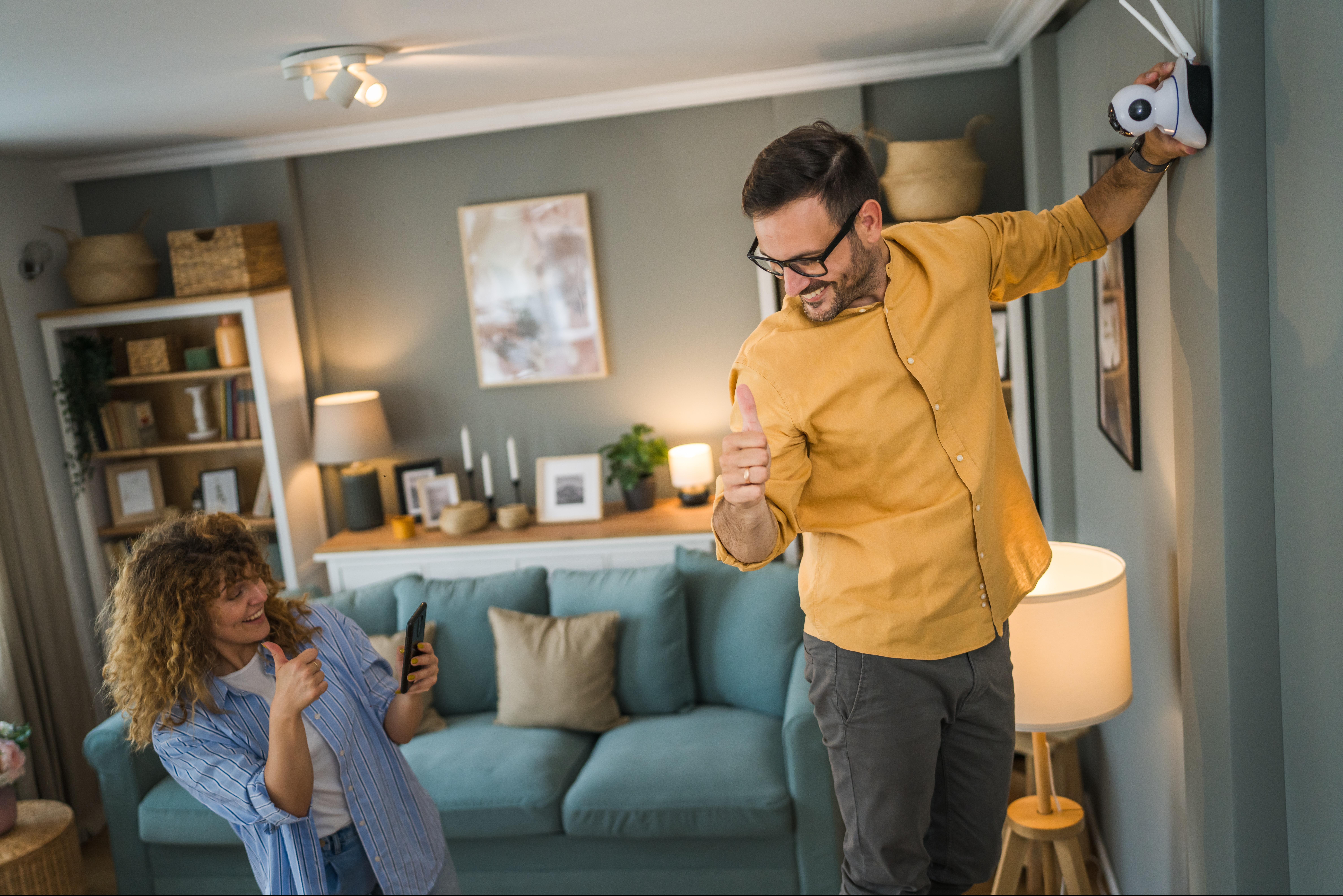Home security is a top priority for every homeowner, and in today’s world, where technology plays a critical role, choosing the best security system for your home can seem like a daunting task. With the range of options available in the market, homeowners are faced with the question of which features truly make a system stand out from the rest.
At the core, the best security system for home protection should provide more than just alarms. It should include advanced surveillance technology, easy-to-use controls, and customizable options that suit individual needs. Whether you’re a tech enthusiast looking for full automation or someone who just wants the basics, the perfect system is one that strikes the right balance between functionality and user-friendliness.
Key Features to Look for in a Home Security System
When exploring security systems, you’ll notice that not all of them are created equal. Some come equipped with state-of-the-art technology, while others cater to basic security needs. Here’s a breakdown of the essential features that distinguish the best systems from average ones.
Cameras: High-definition video surveillance is at the heart of most modern systems. With indoor and outdoor cameras, the system should offer wide-angle views, night vision, and two-way communication. Cameras need to be resilient against weather conditions, especially if they are for outdoor use.
Alarms: While cameras allow you to monitor activity, alarms are necessary to deter intruders immediately. A good security system should include a combination of door and window alarms, motion detectors, and audible sirens to alert you in case of any breaches.
Remote Monitoring: Remote access through smartphones or other devices is critical. Most top-tier systems now offer mobile apps where homeowners can check their cameras, arm or disarm the system, and receive instant notifications.
Smart Home Integration: As smart technology advances, it’s essential that your security system integrates with existing smart devices like Alexa, Google Home, or other automated home features. This allows for voice control and easier management of the entire home environment.
Durability and Reliability: The best systems will have long battery life (or power backups), and will continue to function even during power outages. They should also be tamper-resistant to prevent anyone from disabling them easily.
Benefits of Installing a Home Security System
Security systems offer numerous advantages beyond just protecting your home from burglary. They are an investment in peace of mind and often contribute to financial savings in the long run.
Crime Deterrence: Studies have shown that homes with visible security systems are far less likely to be targeted by burglars. The presence of cameras, alarms, and motion sensors creates an environment of vigilance that dissuades most potential intruders.
Peace of Mind: Knowing your home is secured provides immense comfort, especially when you are away. Whether you’re at work, on vacation, or just out for the evening, having real-time updates about the safety of your home allows for stress-free living.
Insurance Benefits: Many insurance providers offer discounts on home insurance premiums for homes equipped with security systems. The logic is simple—fewer claims for break-ins or damages translate to reduced risk for the insurer, which leads to lower costs for you.
Safety for Family and Valuables: Your family’s safety is paramount, and a security system ensures that they are protected from both internal (fire, carbon monoxide) and external threats. Additionally, valuable items like jewelry or important documents are far more secure with an advanced security setup in place.
Wired vs. Wireless Home Security Systems
One of the biggest decisions when selecting a home security system is choosing between wired and wireless options. Each type has its pros and cons, and understanding them can help you make the best decision for your home setup.
Wired Systems: These systems rely on physical connections, which tend to be more reliable and secure since they are not vulnerable to Wi-Fi disruptions. However, wired systems are typically harder to install, requiring professional help to lay cables throughout the home. This can increase the overall cost of installation.
Wireless Systems: These systems are easier to install and often come with user-friendly apps for remote control. While they are more flexible in terms of placement and can be expanded more easily, they depend heavily on Wi-Fi connectivity, which can be a drawback in areas with poor internet service.
Related Topic: Find the Best Home Security System in 2024: Buyer’s Guide
Enhance Your Home Security with R3 Access Products
To further elevate your property’s protection, consider integrating advanced security solutions from R3 Access Inc. Here are some key products that can complement traditional home security systems:
Access Control
Wireless access control utilizes cloud and cellular technologies to efficiently manage property access through various options like phone apps, keypad systems, and fobs.
Automated Gate Operators
R3 Access offers a variety of automated gates, including barrier arms and sliding gates, to secure perimeters for different property types.
Crash Systems
These anti-ram barriers provide the highest level of protection against vehicle impacts, making them ideal for sensitive locations like embassies and airports.
Monitoring, Accessories & Parts
R3 Access supplies essential accessories and advanced monitoring tools to enhance the effectiveness of your security systems.
For more details, visit: https://r3accessinc.com/r3-products/
Why You Need a Security System?

Home security systems are not just a luxury; they are a necessity for many homeowners. According to statistics, homes without security systems are three times more likely to be burglarized than those with protection. Here are a few reasons why you should consider installing a security system in your home:
Deterrence
The mere presence of a security system can deter potential burglars. Many systems come with visible signs and stickers that alert intruders to the fact that your home is protected.
24/7 Monitoring
Modern security systems offer round-the-clock monitoring, ensuring that someone is always watching over your home. This feature can be crucial in emergencies, alerting authorities immediately.
Remote Access
Many systems allow homeowners to monitor their property remotely via smartphone apps, giving you the ability to check in on your home at any time.
Emergency Response
In case of a break-in, fire, or other emergencies, security systems can automatically notify local authorities, ensuring a quick response.
Peace of Mind
Knowing that your home is protected allows you to relax and enjoy your time away, whether it’s a day at work or a week-long vacation.
Types of Home Security Systems
Understanding the different types of security systems available can help you make an informed decision that best suits your needs.
1. Wired Security Systems
Wired security systems use physical cables to connect components such as sensors, cameras, and alarms. While installation can be more complex, they often offer higher reliability and lower susceptibility to interference. Here are some advantages and disadvantages:
- Pros:
- Reliable and consistent performance.
- Less prone to hacking or interference from Wi-Fi signals.
- Cons:
- More difficult to install, often requiring professional assistance.
- Limited flexibility; moving components may involve significant effort.
2. Wireless Security Systems
Wireless systems have surged in popularity due to their ease of installation and flexibility. These systems connect through Wi-Fi or cellular networks and can be set up without the need for professional installation.
- Pros:
- Easy to install and relocate as needed.
- Often equipped with battery backups, ensuring continued operation during power outages.
- Cons:
- May be susceptible to hacking if not properly secured.
- Require regular battery replacements for wireless sensors and cameras.
3. DIY Security Systems
For those who prefer a hands-on approach, DIY security systems are an excellent option. These kits typically include everything needed for a complete setup, from cameras to sensors, allowing you to customize your security according to your needs.
- Pros:
- Cost-effective, as there are no installation fees.
- Customizable based on personal preferences.
- Cons:
- Some technical know-how may be required for setup.
- Limited professional support in case of technical issues.
4. Professional Monitoring Services
Professional monitoring adds an extra layer of security, where a monitoring center oversees your system 24/7. In the event of a security breach, they can quickly notify local authorities.
- Pros:
- Ensures prompt responses to emergencies.
- Offers peace of mind, knowing that professionals are monitoring your home.
- Cons:
- Often comes with a monthly fee, which can add up over time.
- Requires a long-term contract with some providers.
Related Topic: Cloud-Based MyQ Solutions for Smart Home Security and Data Security Concerns
Key Features to Look for in a Home Security System
When selecting a security system, it’s essential to consider the features that will best meet your needs. Here are some key features to look for:
Video Surveillance
High-definition cameras are critical for monitoring your property effectively. Look for features such as:
- Night Vision: Essential for monitoring during low-light conditions.
- Two-Way Audio: Allows you to communicate with visitors or potential intruders through your camera.
Motion Sensors
Motion sensors can detect movement within designated areas and alert you of any unusual activity. Consider systems with adjustable sensitivity settings to avoid false alarms from pets or passing cars.
Smart Home Integration
Many modern security systems can be integrated with other smart home devices, such as smart locks, lights, and thermostats. This integration allows for centralized control and increased automation.
24/7 Monitoring
Choosing a system that offers continuous monitoring ensures that emergencies are promptly addressed, even when you’re not home.
Mobile App Access
With the rise of smartphones, mobile app access has become a vital feature. Look for systems that allow you to control your security system, receive alerts, and monitor live feeds from your mobile device.
Related Topic: Barriers for High-Security Environments
Final Thoughts:
Investing in a home security system is crucial for protecting your home and loved ones. With the wide range of options available in 2024, the process of selecting the right system can feel overwhelming. However, by understanding the key features and types of systems, you can make an informed choice tailored to your specific needs.
Whether you decide on a DIY setup or prefer professional monitoring, the peace of mind that comes from knowing your home is secure is invaluable.
For a top-tier provider in advanced security solutions, consider R3 Access Inc.. They offer comprehensive, customizable systems designed to provide maximum protection and convenience. Start your journey to a safer home today, and enjoy lasting peace of mind.
Frequently Asked Questions about Home Security Systems
What is the average cost of a home security system?
The cost of a home security system can vary widely based on factors such as the type of system, the features you choose, and whether you opt for professional monitoring. Basic DIY systems may start around $200, while professionally installed systems can range from $800 to over $2,000.
How do I choose the right security system for my home?
When selecting a security system, consider your specific needs, such as the size of your property, the level of security you require, and your budget. Research different systems and their features to find the best fit for your lifestyle.
Can I install a security system myself?
Yes, many modern systems are designed for easy DIY installation. However, if you prefer a more complex setup or professional monitoring, consider hiring a specialist.
What should I do if my security system goes off?
If your security system triggers an alarm, remain calm and assess the situation. Check the monitoring app for alerts and contact the authorities if you suspect a break-in. If it’s a false alarm, follow your system’s protocol for silencing the alarm.



